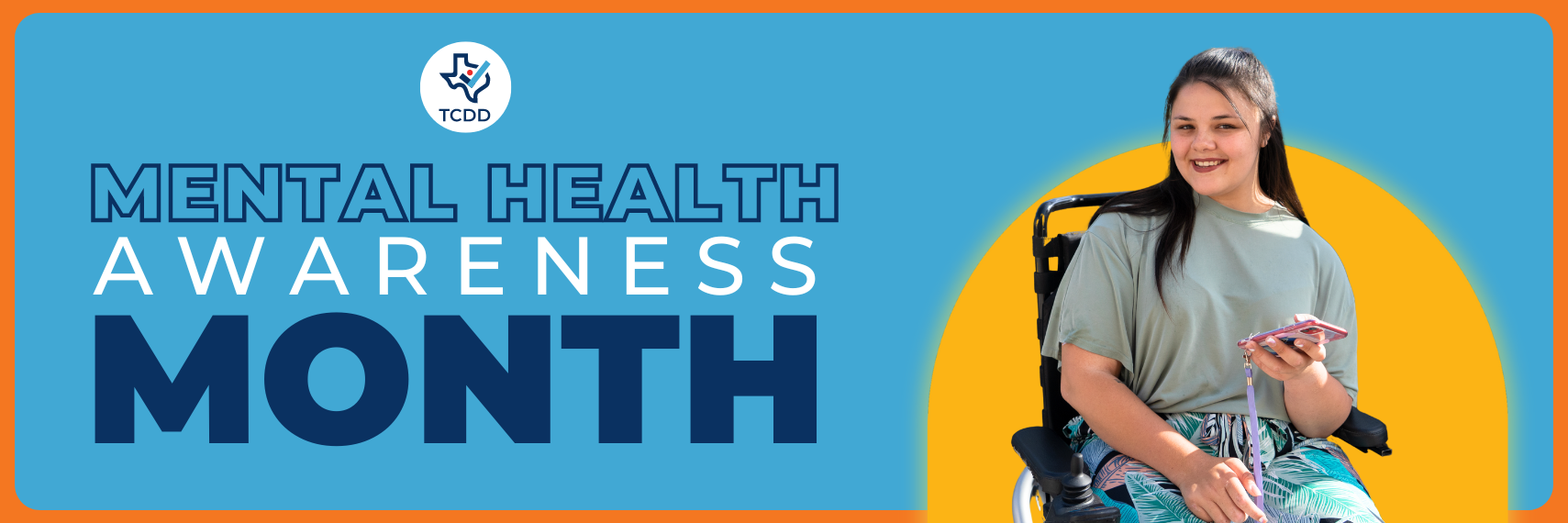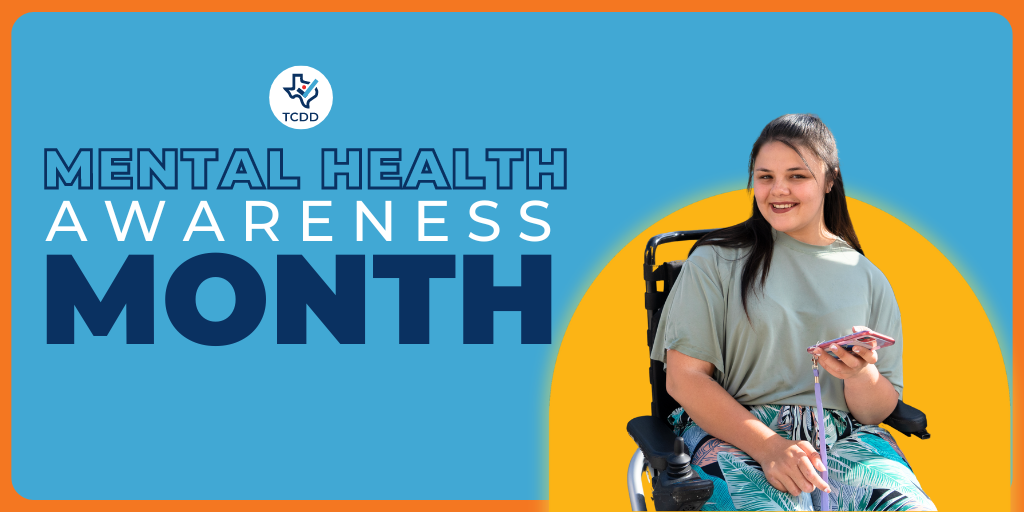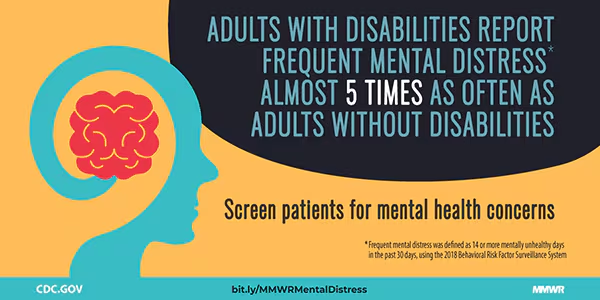

Table of Contents
May is Mental Health Awareness Month
Mental health impacts every Texan’s life. Taking the time to support your mental health and nurture the mental health of your loved ones is a powerful tool in building thriving communities.
In honor of Mental Health Awareness Month, we at the Texas Council for Developmental Disabilities (TCDD) invite you to join us in increasing awareness and reducing the stigma associated with mental illness. Many individuals with developmental disabilities (DD) also experience mental illness, and we are committed to providing more information, resources, and support to address these complex mental health needs.
Mental Health and People with Disabilities
Adults with disabilities experience mental distress more often than those without disabilities, according to a study by the CDC (Centers for Disease Control and Prevention) In 2018, about a third of adults with disabilities in the U.S. reported frequent mental distress, meaning they had 14 or more mentally unhealthy days within the previous month. This rate was about five times as often as the reports from people without disabilities. Since that time, the COVID-19 pandemic further impacted the mental health of people with disabilities and created more disparities in access to health care for individuals with DD. The Administration for Community Living gathered research findings on COVID-19 and the mental health of people with disabilities (PDF, 4 pages, 462 KB).

Legislators Address Mental Health in Interim Charges
- Monitoring: Monitor the agencies and programs under the Committee’s jurisdiction and oversee the implementation of relevant legislation passed by the 88th Legislature. Conduct active oversight of all associated rulemaking and other governmental actions taken to ensure the intended legislative outcome of all legislation, including the following:
- SB 26, relating to local mental health authority and local behavioral health authority audits and mental and behavioral health reporting, services, and programs
- Responses to Mental Health Emergencies: Review and evaluate best practices of procedures for the emergency detention of a person with mental illness.
- Mental Health Services and Inpatient Facilities: Monitor the implementation of Senate Bill 30, 88th Legislature, Regular Session, with regard to appropriations made for expanding mental health services and inpatient facilities across the state. Report on the progress of inpatient facility construction projects. Assess and report on the effectiveness of spending on mental health services.
- Children’s Mental Health: Review care and services currently available to the growing population of Texas children with high acuity mental and behavioral health needs. Make recommendations to improve access to care and services for these children that will support family preservation and prevent them from entering the child welfare system.
Hear from a TCDD Policy Fellow

TCDD Mental Health Initiatives
All people, regardless of their disability, age, or income level, should have access to affordable, comprehensive health care, including access to mental health care. TCDD understands the need to expand information and training about mental health for people with DD. The Council aims to address these information and service gaps through our grant-funding initiatives. Our recent grant projects related to mental health include the following.
- Complex Mental Health Needs and People With DD (The University of Massachusetts Chan Medical School)
- Coping with Grief and Loss (Rice University)
- Project TEDD (Training Educators in Dual Diagnosis) (Texas Tech University)
- Trauma-Informed Mental Health Care for Youth with DD (Meadows Mental Health Policy Institute)
- The Whole Person Training (The Arc of Texas)
Resources for People with Disabilities
Mental health awareness is not limited to the month of May. If you or someone you know is experiencing a mental health crisis, there are people to help. Call the Mental Health Hotline at 866-903-3787. This hotline is confidential and free to use. People are available to speak with you 24 hours a day, seven days a week.
If you or someone you know is having suicidal thoughts, call 988 to speak with someone immediately. The Lifeline provides 24/7, free and confidential support for people in distress, prevention and crisis resources for you or your loved ones, and best practices for professionals in the United States.
